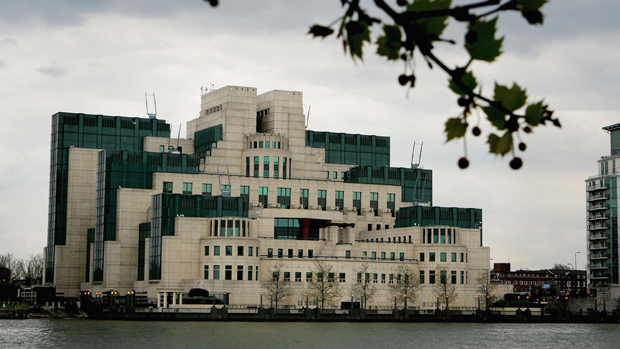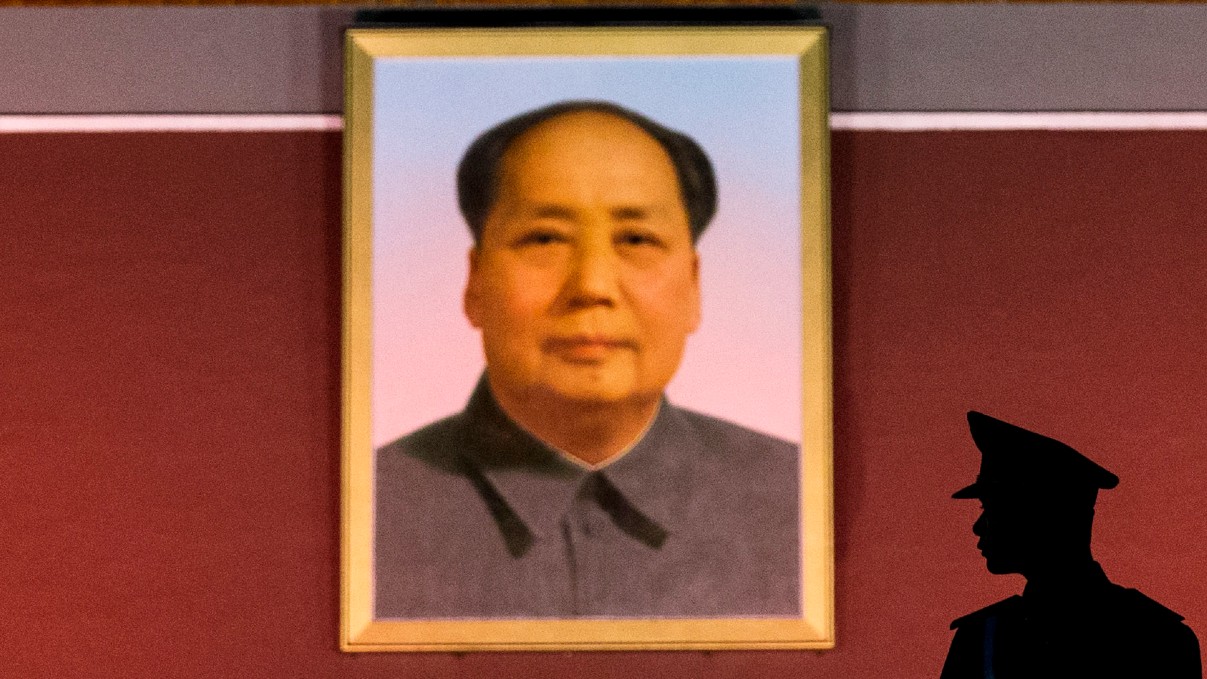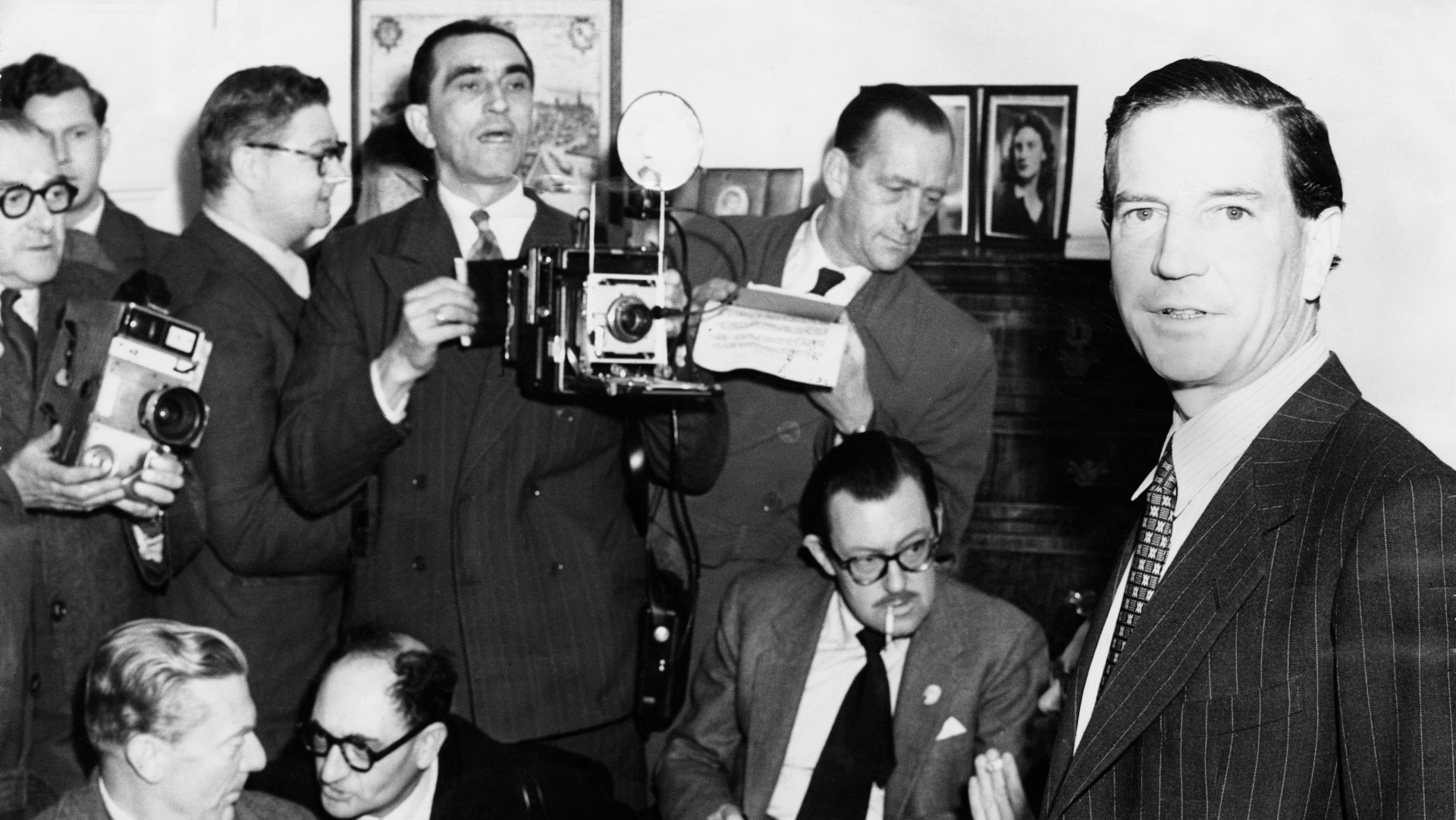Is the Official Secrets Act fit to counter 21st century espionage?
Senior police, MI5 and MI6 sources call on government to update spying law

A free daily email with the biggest news stories of the day – and the best features from TheWeek.com
You are now subscribed
Your newsletter sign-up was successful
Britain’s most senior police officer and the former head of MI5 have called for the Official Secrets Act (OSA) to be bolstered due to the spying threat from hostile states.
The Metropolitan Police Commissioner Cressida Dick said the public should be worried about the threat from Russia, after the government and intelligence agencies were heavily criticised in the Commons Intelligence and Security Committee (ISC)’s long-awaited Russia report.
What is the Official Secrets Act?
The Week
Escape your echo chamber. Get the facts behind the news, plus analysis from multiple perspectives.

Sign up for The Week's Free Newsletters
From our morning news briefing to a weekly Good News Newsletter, get the best of The Week delivered directly to your inbox.
From our morning news briefing to a weekly Good News Newsletter, get the best of The Week delivered directly to your inbox.
The Official Secrets Act is the piece of UK legislation that makes it an offence for anyone to make a “damaging disclosure of any information or document” relating to security or intelligence.
“The law is strictest for those working for the security and intelligence services, past and present,” says the BBC. “Any unauthorised disclosure - under any circumstances - is a criminal offence, but the rules are different for Crown servants (for example, civil servants, government ministers, the armed forces or police).”
A person does not have to sign the Official Secrets Act to be bound by it, instead they can simply be notified that it applies to them. “Government employees are usually informed they are subject to it in their contracts,” says The Sun, although “many are still asked to sign the act as a way of reinforcing its content”.
Is it fit for purpose?
A free daily email with the biggest news stories of the day – and the best features from TheWeek.com
Dick, Britain’s most senior police officer, said the OSA must be “firmed up”, and that prosecuting those who help hostile states is currently challenging because of the constraints of existing legislation, reports The Times.
While it is the intelligence agencies' job to tackle hostile spies, it falls to the Met to pursue potential espionage and spying charges. And Dick told LBC: “Absolutely that legislation could be firmed up. For example the sentences are short, some of the requirements to prove the offence are very difficult.”
Former MI5 chief Andrew Parker backed that view, telling the ISC that foreign spies were currently able to operate with impunity in the UK, because the current legislation meant only those caught stealing secrets red-handed could face justice.
Parker warned that “it is not an offence in any sense to be a covert agent of the Russian intelligence services in the UK”, adding that the Official Secrets Act has become “dusty and largely ineffective”, leaving UK spy agencies in a bind when it comes to espionage in the “economic sphere, cyber [and] things that could be more to do with influence”.
Nigel Inkster, former director of operations and intelligence for MI5’s international sister agency SIS (MI6), agreed that the OSA made it very difficult to prosecute an individual for spying unless they were caught explicitly stealing secrets.
Speaking to the BBC, Inkster said: “The 1911 Act – modified in 1989 – leaves the security services and police in a situation where, unless they can catch someone red-handed taking delivery of papers marked secret, it is really difficult to prosecute anybody for espionage.”
Will laws be toughened?
The government has promised to give intelligence agencies more powers after a critical report on its response to the Russian threat.
New legislation is expected to include the introduction of an official “register of foreign agents” like those used in the US and Australia. Failure to register could result in a prison sentence or deportation, if the foreign spies are sniffed out.
Inkster said that the new register is “not going to stop countries like Russia from sending covert operatives to the United Kingdom to undertake intelligence operations”, but added that “it does make it possibly more realistic to prosecute the people who are supplying them with information”.
Boris Johnson announced yesterday that new laws were coming on espionage, intellectual property theft and sanctions, insisting that “there’s no other government in the world that takes more robust steps to protect our democracy, to protect our critical national infrastructure and to protect our intellectual property from interference by Russia or by anybody else”.
The Law Commission is already reviewing the Official Secrets Act, which was branded “out of date” by the ISC. Recommendations by the Law Commission, likely to include tougher sentencing, are expected this year.
-
 Local elections 2026: where are they and who is expected to win?
Local elections 2026: where are they and who is expected to win?The Explainer Labour is braced for heavy losses and U-turn on postponing some council elections hasn’t helped the party’s prospects
-
 6 of the world’s most accessible destinations
6 of the world’s most accessible destinationsThe Week Recommends Experience all of Berlin, Singapore and Sydney
-
 How the FCC’s ‘equal time’ rule works
How the FCC’s ‘equal time’ rule worksIn the Spotlight The law is at the heart of the Colbert-CBS conflict
-
 Blaise Metreweli: the first female head of MI6
Blaise Metreweli: the first female head of MI6In the Spotlight The intelligence service's current technology boss – known as 'Q' – has been revealed as the new chief, or 'C'
-
 Is it safe to share state secrets with the US?
Is it safe to share state secrets with the US?Today's Big Question Accidental top-level leak stokes security concerns from America's allies
-
 Russia's spies: skulduggery in Great Yarmouth
Russia's spies: skulduggery in Great YarmouthIn the Spotlight 'Amateurish' spy ring in Norfolk seaside town exposes the decline of Russian intelligence
-
 China's vast intelligence network
China's vast intelligence networkThe Explainer Cyber capabilities and old-fashioned human intelligence operate in 'fundamentally different way from those in the West—in nature, scope, and scale'
-
 Israel reportedly had actual Hamas attack plan a year before Oct. 7 assault
Israel reportedly had actual Hamas attack plan a year before Oct. 7 assaultSpeed Read Israeli officials considered the intercepted battle plan too ambitious and out of step with their view that Hamas didn't want a war with Israel, documents show
-
 'Worst day in Israeli history': why didn't anyone see it coming?
'Worst day in Israeli history': why didn't anyone see it coming?Today's Big Question Serious intelligence failings compared to 9/11, Pearl Harbor and 1973 Yom Kippur War
-
 The Pentagon docs: America’s worst intelligence leak in a decade
The Pentagon docs: America’s worst intelligence leak in a decadefeature Classified files reveal Ukrainian military vulnerabilities, penetration of Russian intelligence and information on US allies
-
 Kim Philby: unmasking the original Cold War double agent
Kim Philby: unmasking the original Cold War double agentIn the Spotlight New files reveal infamous Soviet spy could have been outed years before defecting